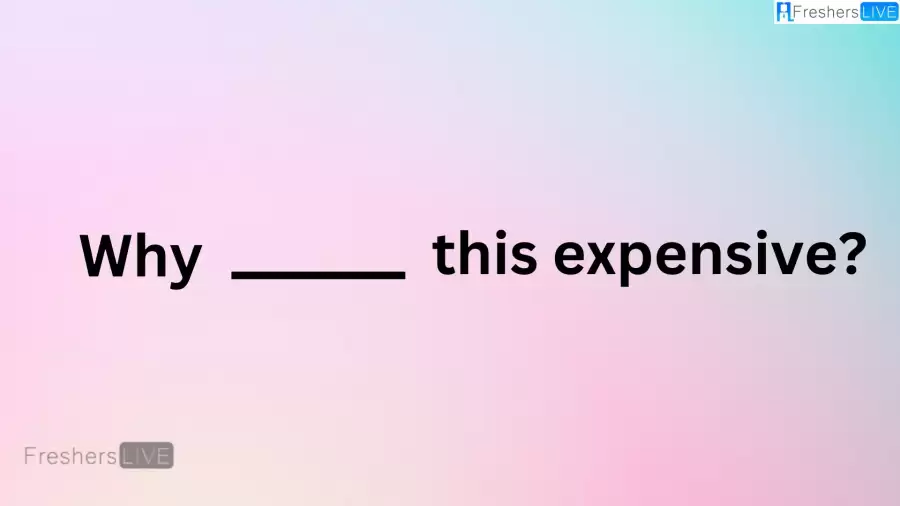Test Your Grammar Skills With These 5 Questions in This Puzzle
by T Santhosh
Updated Oct 03, 2023

Test Your Grammar Skills With These 5 Questions in This Puzzle
Discover the world of grammar puzzles. These puzzles make you think about grammar and use your creative skills. They keep your mind active and can even help you relax. There are many grammar challenges to enjoy, including the ones coming up. This challenge is a bit tricky and is best for people who are great at grammar and pay attention to small details.
When you become really good at this kind of puzzle, it's not just fun – it gives you skills that can be useful in different parts of your life. Although the puzzle might seem hard at first, your goal is to find a solution that follows the grammar rules perfectly and reveals the puzzle's secrets. The next part will explain this grammar puzzle in detail and show you how to solve it.
Fresherslive lets you engage your mind in delightful brain exercises by exploring wide range of Brain Teaser. These thought-provoking challenges are designed to captivate your intellect and offers a diverse selection for every curious mind.
1. Why ___ this expensive?
The word "is" is used to show that something exists or is happening right now. It's called the present tense. In this case, it's used to tell us what the current situation or condition is. So, when you see "is" in a sentence, it's helping you understand what's going on at the present time. In this case, when someone says, "Why is this expensive?" they are asking why something costs a lot of money right now. So, "is" helps us ask questions and talk about what's happening at the moment. It's a common part of English grammar that helps us understand and communicate about the present situation.

2. I don't have ___ money
The word "much" is used in the sentence "I don't have much money" to describe the quantity or amount of money. In English, "much" is often used to talk about a large or significant amount of something. In this case, when someone says, "I don't have much money," they are saying that they have only a small or limited amount of money, not a lot. So, "much" helps us express the amount or quantity of something, and in this sentence, it tells us that the person has a small amount of money.

3. I have ___ oil
The word "little" is used in the sentence "I have little oil" to describe the small amount or quantity of oil. In English, "little" is often used to convey a small or limited amount of something. So, "little" helps us communicate the degree or extent of something, indicating that there is not much of it. In this sentence, it specifies that the person has only a small quantity of oil.

4. She ___ him 20 dollars
The word "gave" is used in the sentence "She gave him 20 dollars" to describe an action that happened in the past. In English, "gave" is the past tense form of the verb "give." It is used to talk about an action that took place and is completed in the past. In this sentence, it tells us that she performed the action of giving him 20 dollars at some point before now. So, "gave" helps us express actions that happened in the past, like when someone gave money to someone else.

5. ___ people supported us
The word "many" is used in the sentence "Many people supported us" to describe the quantity or number of people who provided their support. In English, "many" is often used to indicate a large number of something. When someone says, "Many people supported us," it means that a significant or substantial number of individuals offered their support. So, "many" helps us convey the extent or numerosity of something, showing that a lot of people supported the speaker.

Calculate the Outcome of 192 ÷ 16 + 7 x 3 - 14 ÷ 2=?
To find the answer, follow the order of operations. Begin with the divisions and multiplications from left to right: 192 ÷ 16 equals 12, and 14 ÷ 2 equals 7. Now the equation becomes 12 + 7 x 3 - 7. Next, perform the multiplications and additions/subtractions from left to right: 7 x 3 equals 21, and 12 + 21 equals 33. Therefore, the solution is 33.
Determine the Result of 156 ÷ 13 + 8 x 2 - 16 ÷ 4=?
Stick to the order of operations as usual. Start with the divisions and multiplications from left to right: 156 ÷ 13 equals 12, and 16 ÷ 4 equals 4. Now the equation becomes 12 + 8 x 2 - 4. Next, perform the multiplications and additions/subtractions from left to right: 8 x 2 equals 16, and 12 + 16 equals 28. Thus, the solution is 28.
Test Your Grammar Skills With These 5 Questions in This Puzzle FAQs
Grammar puzzles are challenges that test your understanding of grammar rules through word or sentence manipulation.







